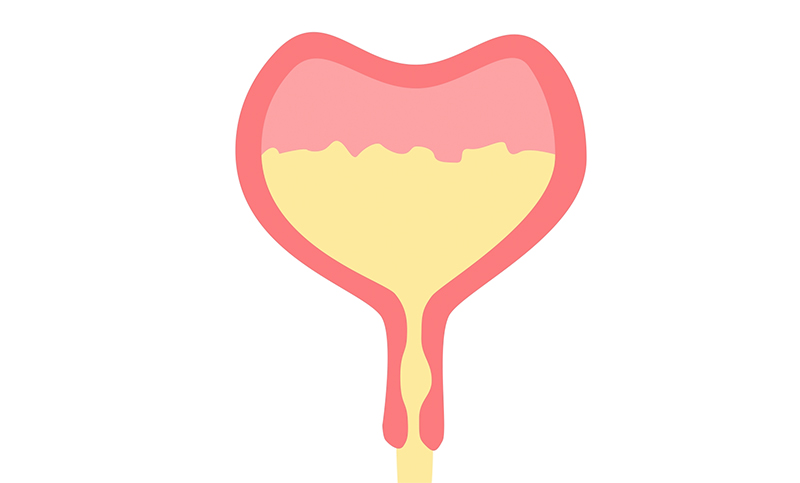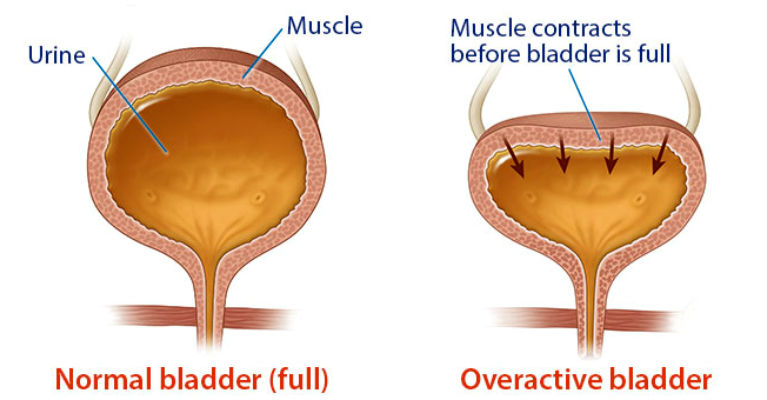What Is An Overactive Bladder?
What Is An Overactive Bladder?

An overactive bladder can have a real impact on quality of life. However, there are effective treatments and management techniques available. Let’s take a look.
Overactive bladder (OAB) syndrome is a condition characterised by a group of urinary symptoms: the urgent need to go to the toilet, frequently needing to go to the toilet, or urine leaking out before you make it there.
It is caused by sudden, involuntary contractions of the muscular wall of the bladder. These are not painful, and are not accompanied by any other symptoms (such as blood in the urine or a burning sensation) – these may indicate another condition.
Having an OAB can be very frustrating or embarrassing, and in time severely affect quality of life. Often those who suffer from it find their entire revolving around bathroom trips, and it can have a profound emotional impact.
If you suffer from OAB, be sure to see your urologist to discuss treatment, which will likely involve bladder training and other management techniques like fluid intake schedules, avoiding irritating liquids, and timed voiding. Medications to help the bladder relax are also available.
Symptoms of Overactive Bladder Syndrome
You may have an overactive bladder if you:
• Often feel a sudden urge to go to the toilet that’s difficult to control.
• Feel the need to go to the bathroom frequently during the day (usually 10 times a day or more).
• Leak urine after feeling the need to go to the bathroom – this is what is known as urge incontinence.
• Wake up twice or more during the night to urinate – this is known as nocturia.

Causes of Overactive Bladder Syndrome
The symptoms of OAB are caused by sudden, involuntary contractions of the muscular wall of the bladder, resulting in the need to urinate. However, the reason these contractions occur is not fully understood, hence why it is simply referred to as overactive bladder syndrome.
It is believed to have something to do with miscommunication between the bladder and the brain. This may be due to damage to the nerves in and around the bladder caused by diabetes, stroke, multiple sclerosis, Parkinson’s disease, trauma, surgery or exposure to radiation.
Some things may also contribute to the symptoms:
• Weak pelvic muscles, perhaps caused by the strain of pregnancy and childbirth.
• Ageing and menopause – the bladder can change as you get older, especially in women after menopause. Ageing can also affect the communication between the brain and bladder due to decreased cognitive function.
• Increased weight, which can place greater strain on the bladder and pelvic muscles.
• Abnormalities in the bladder, such as bladder cancer or bladder stones.
• Obstruction of urinary flow, such as an enlarged prostate, or constipation
Treatment of An Overactive Bladder
There are a number of effective treatments for an overactive bladder. Many of these are non-invasive (not surgery) and can be practised every day.
Conservative treatment includes changes to lifestyle factors that may be contributing to symptoms, such as reducing intake of diuretics like caffeine and alcohol, reducing weight and increasing exercise.
Bladder training is also very effective, as is a routine of pelvic floor exercises (suitable in cases where weak pelvic muscles are the reason behind symptoms). Medications (anticholinergics) are also available to help relax the bladder.
In some cases, an anti-spasm bladder injection may be a suitable treatment, particularly for patients suffering symptoms due to another condition or injury, such as spinal cord injury, spina bifida, or multiple sclerosis.
If lifestyle changes, medication or an injection fail to improve symptoms, nerve stimulation may be recommended, however, these have not always proven to be effective. Sacral nerve stimulation involves implanting a small pulse generator device under the skin of the buttock to transmit electrical signals to the nerves that control the bladder. This may help stimulate proper bladder function. As a last resort, surgery (augmentation cystoplasty or a urinary diversion) may be recommended.
If you have any further questions about an overactive bladder and would like to book an appointment, please feel free to call.

Why Should You See a Urologist? Here Are 6 Common Reasons
Urologists are medical specialists who diagnose and treat conditions related to the urinary tract and the male reproductive system. While…

Why Does Testicular Pain Persist? Common Causes to Know
Testicular pain is relatively common; however, when it becomes severe and long-lasting, there may be some cause for concern. This…






